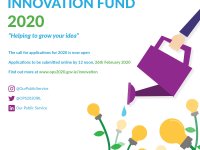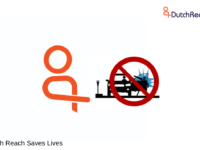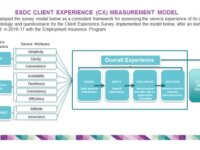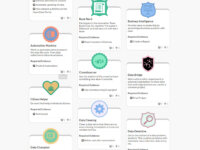A growing number of challenges face the province from an aging population and growing debt to successive one-term government and a disengaged public service. Given these challenges, there is a growing consensus in the public service that change is needed despite organizational structures and behaviours that favour the status quo. As a result, GNB’s “Innovation and Design services” has evolved to help public servants become better problem solvers and move towards a more human-centred…
Innovation Tag: Organisational Design
Tiger Team is a monthly cross-corporate super team of 25+ passionate people to boldly tackle problems in the administration and city. This collaborative experiment brings together staff, citizens, and community stakeholders for 2.5 hours to understand and explore complex problems, generate ideas and prototype solutions to test with users. By bringing together these diverse perspectives Tiger Team is able to compress timelines, find unexpected solutions, identify change makers, and break down…
“TAKO – Moms” is the result of a project with the goal of developing a Minimum Viable Product to help tax administration service workers with customer service. TAKO is an online overview of all customers, which was created by the service workers themselves in collaboration with programmers. This process resulted in both exceptional improvements in the payment of VAT’s as well as large evolutions in the skills of the workers, without launching a high-cost project.
The Public Service Innovation Fund provides public service bodies in Ireland with a means to fund innovative projects that may not otherwise get financed by their organisations. It was developed to help promote a greater culture of innovation and experimentation in the Irish Public Service, and to showcase the benefits of innovation to other public servants considering embarking on their own innovative project. This is Ireland's first public service-only innovation funding mechanism.
The City of Austin has launched a shared approach to user-centered design, iterative technology development, and collaborative policymaking through its Office of Design & Delivery, which has grown to include over 25 experts in service design, interaction design, content strategy, web development, and agile product management. Through cross-disciplinary teams spanning design, technology, and policy, their teams have improved outcomes in public safety, public health, and digital transformation.
Dutch Reach Project (DRP) closes a serious gap in existing road safety efforts to prevent “dooring,” a common, feared & at times fatal crash caused when exiting motorists - using their near hand - suddenly throw open their car door into the path of a bicyclist or other vulnerable road user (VRU).
To prevent dooring, DRP promotes the Dutch Reach (DR): reaching across to the door with the far hand to open - a much safer method.
The DR project is already gaining increasing attention and being…
Combining Design Thinking and Rapid Impact Evaluation methodologies allows for a user-centered counterfactual to measure the impact of the current program design, while simultaneously identifying programmatic design flaws and generating solutions for improvement. The participative process for co-developing the counterfactual triangulates multiple user perspectives and data sets to provide new lines of evidence to pursue innovative solutions and offer a more iterative approach to evaluation.
Organisational development in a municipality within a framework set by the municipal council is not new. However, a local authority can still be innovative in how it designs such development and the role employees play in it. In Nijkerk (approx. 43,000 inhabitants), this has led to an organisation made up of 28 self-managing teams that come directly under the authority of the municipal clerk. Nijkerk went through a process where employees and the development of their talent came first.
The Client Experience Measurement Survey Model was developed by Employment and Social Development Canada to gather and analyse client feedback to improve service delivery to its clients. Canadians have been able to express their views on government programs and services, which have informed the way programs and services are designed and delivered. The survey allows the tracking of service satisfaction, ease of access, effectiveness of service delivery, and the experience of particular programs…
The Louisville Metro Badge Program rewards employees for tasks like creating an open dataset, crowdsourcing information from citizens or collaborating with other departments on projects. There’s a tiered reward system for civil servants who participate, with prizes ranging from LinkedIn recommendations to recognition at a city-wide awards ceremony.





